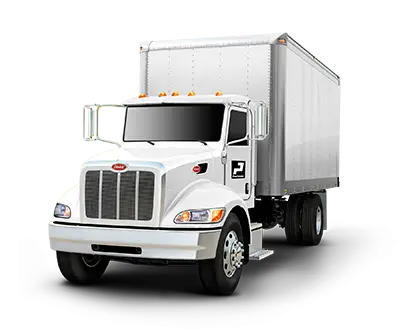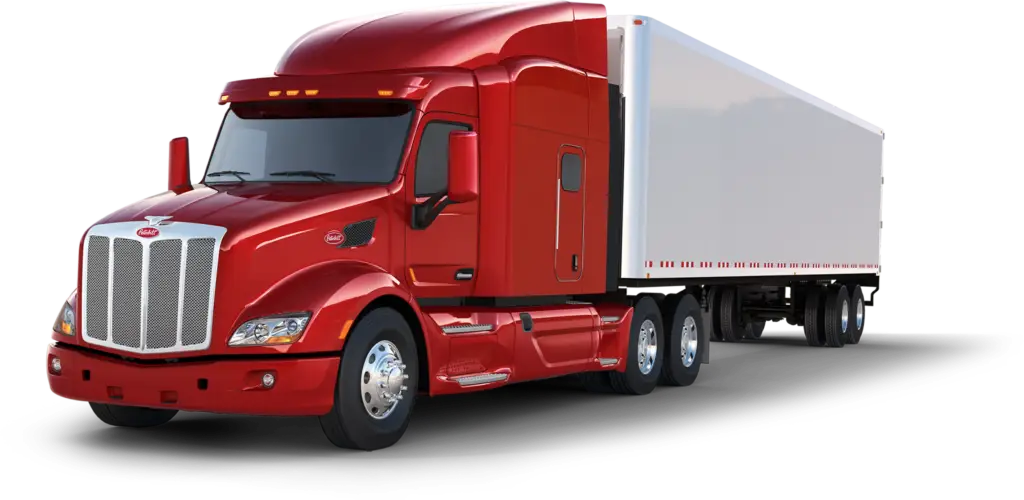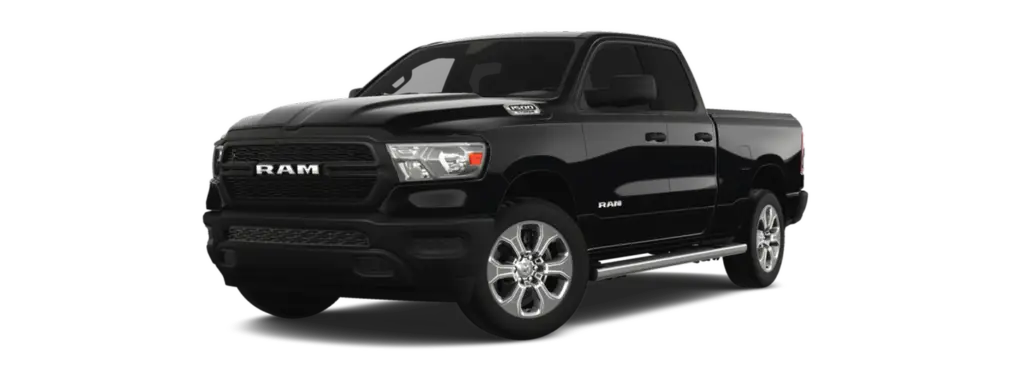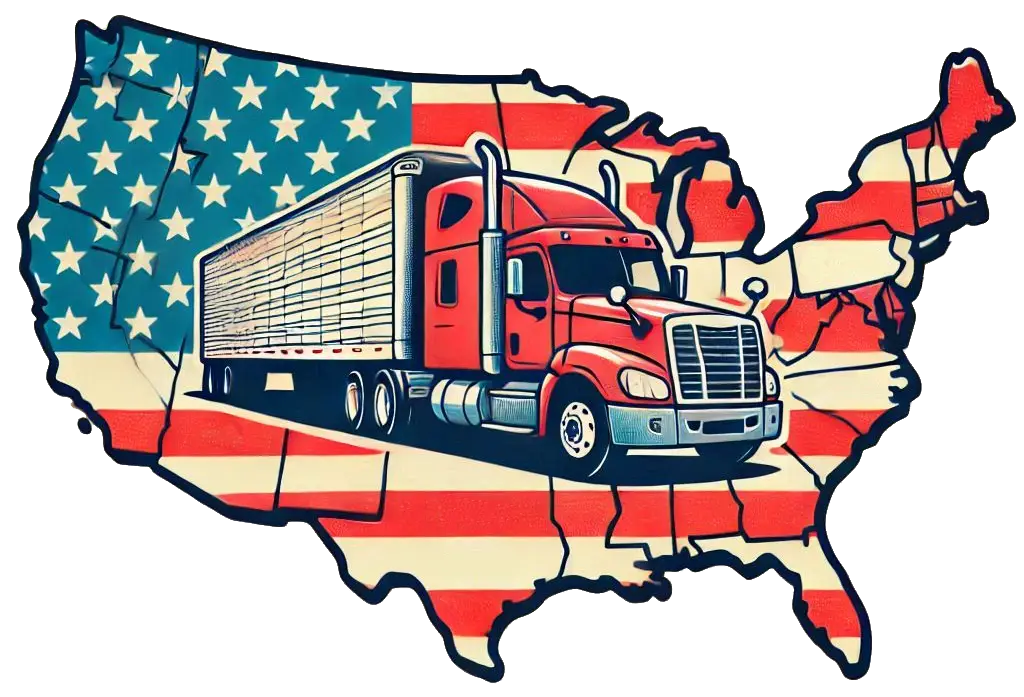Starting a trucking business can be a lucrative venture, but it requires careful planning, knowledge of the industry, and adherence to regulations. Here’s a guide to help you navigate the process:
1. Develop a Business Plan
A clear business plan outlines your goals, strategies, and operational structure. Key components include:
- Legal Entity Type (read more)
- Type of trucking services: Local, long-haul, freight types (e.g., dry van, refrigerated, flatbed, motor vehicles).
- Budget: Initial investment, operating costs, and projected revenue.
- Target market: Shippers, brokers, or direct clients.
→ Create a Financial Plan
- Start-Up Costs: Initial expenses can include permits, insurance, equipment, and fuel.
- Operating Costs: Factor in maintenance, tolls, and driver wages.
- Freight Rates: Research market rates to ensure profitability.
2. Choose the Right Equipment
New or Used. Consider maintenance costs, warranties, and initial investment. Decide whether to buy or lease trucks and trailers based on your budget and needs.



Equipment Type (Truck and Trailer)
When selecting a truck, consider factors such as:
-
- Weight Capacity
- Maintenance Costs
- Fuel Efficiency
3. Understand Industry Regulations
Before you start you should determine whether your trucking business will operate in INTRASTATE Commerce (operating within a single state without leaving state borders) or INTERSTATE Commerce (operating crossing the state lines). This choice is crucial as it will influence your business strategy, compliance obligations, and operational expenses.
The trucking industry is heavily regulated to ensure safety and compliance. Key requirements include:

→ FMCSA Registration
The Federal Motor Carrier Safety Administration (FMCSA) is the U.S. government agency responsible for regulating and ensuring the safety of commercial motor vehicles (CMVs) and their operators. If your trucking business involves operating interstate commerce (across state lines), you must comply with FMCSA regulations. You must obtain a USDOT number and MC (Motor Carrier) Operating Authority to operate interstate legally.
After your company obtains its Operating Authority, you will need to wait approximately 24 business days for it to be granted. During this waiting period, you must complete the following requirements:
-
Secure Proper Commercial Insurance
- Obtain Bodily Injury and Property Damage (BIPD) liability insurance. This is mandatory and ensures you meet FMCSA’s minimum coverage requirements, which vary based on the type of freight:
- $750,000 for general freight.
- $1,000,000 for oil and motor vehicle transport.
- $5,000,000 for passenger and hazardous materials.
- Optional but recommended: Physical Damage Coverage for your truck(s) to protect against accidents, theft, or vandalism.
- Obtain Bodily Injury and Property Damage (BIPD) liability insurance. This is mandatory and ensures you meet FMCSA’s minimum coverage requirements, which vary based on the type of freight:
-
File a BOC-3 (Designation of Process Agents), is a required filing with the Federal Motor Carrier Safety Administration (FMCSA) for trucking companies, brokers, and freight forwarders operating in the United States. It designates legal representatives (process agents) in every state where your company operates who can receive legal documents on your behalf, such as court summons or legal notices.
* This form must be filed by an authorized service provider, not directly by the carrier.
** Completing these 2 steps within the 24 business days waiting period ensures that your Operating Authority is granted without delays.
State and Federal Compliance: Understand IFTA, IRP, and UCR requirements.
Understanding IRP, IFTA and UCR requirements is essential for trucking businesses, especially those operating in interstate commerce. Here’s a breakdown of each:
→ International Registration Plan (IRP)
What It Is:
IRP or “Apportion Plates” is a reciprocal agreement among the U.S. states and Canadian provinces that allows motor carriers to register vehicles in purpose of operations in multiple jurisdictions (interstate) with a single base plate.
Who Needs IRP (simplified):
- Trucks operating in interstate commerce with a GVWR over 26,000 lbs., or
- Vehicles with three or more axles, regardless of weight.
Key Requirements:
- Base Jurisdiction Registration: IRP must be register in your home state or province, your “base jurisdiction”. Your base jurisdiction is the state where you hold your driver’s license or your company was formed. For the purpose of registration you will need to provide proof of address, either physical or business address.
- Heavy Vehicle Use Tax (HVUT 2290): Heavy Vehicle Use Tax is a federal requirement for all who will be using Commercial Motor Vehicles (CMV) for which the GVWR is above 55,000lbs.. It’s an annual tax and it must be filed prior to the registration and renew every July.
- Mileage Reporting: For the purpose of annul renewing your registration under the International Registration Plan (IRP), you must document the miles traveled in each IRP jurisdiction (i.e., mileage driven in each state or province). Registration fees are calculated based on the percentage of miles traveled in each jurisdiction relative to your total mileage. Electronic Logbook Device (ELD) or Record of Duty Status (RODS) are the ways how you keep record of miles traveled.
- Drivers must hold a Commercial Driver’s License (CDL) to operate vehicles of this weight class.
- Your company is also required to obtain an International Fuel Tax Agreement (IFTA) license, which will be explained in greater detail later in this text.
→ International Fuel Tax Agreement (IFTA)
What It Is
The purpose of International Fuel Tax Agreement (IFTA) is to fairly distribute fuel taxes among the states or provinces you travel through. Also, it is a program that simplifies fuel tax reporting for trucking companies that operate in multiple U.S. states or Canadian provinces. Instead of filing fuel taxes separately in each jurisdiction, you file a single quarterly report with your home state (your “base jurisdiction”).
Here’s how it works in simple terms:
- When you buy fuel in different states, you might notice that the fuel price and tax rates vary.
- If you buy fuel in a state with lower fuel taxes but drive mostly in states with higher fuel taxes, you’ll owe the difference to the government.
- On the other hand, if you buy fuel in a state with higher fuel taxes but drive mostly in states with lower fuel taxes, the government will refund you the difference.
Simplified:
You pay taxes based on where you drive, not just where you buy fuel. IFTA ensures that each state gets its fair share of fuel taxes.
Who Needs IFTA:
- Trucks with a Gross Vehicle Weight Rating (GVWR) of 26,001 pounds or more, or
- Vehicles with three or more axles, regardless of weight.
Key Requirements:
- IFTA License and Decals: You must obtain an IFTA license and display decals on each qualified vehicle.
- Fuel Tax Reporting: File quarterly fuel tax reports to your base jurisdiction, detailing miles driven and fuel purchased in each IFTA jurisdiction. Taxes are calculated and redistributed accordingly.
- Recordkeeping: Maintain accurate records of mileage (by jurisdiction) and fuel receipts for audit purposes.
- Renew the License Every Year: Throughout of December every year you must renew your license. I should be done as soon as possible so you can get your license and decals on time, before the end of year since you must allow it some 3-4 weeks to arrive to your mailing address.
→ Unified Carrier Registration (UCR)
What It Is
UCR is a federal program requiring carriers operating in interstate commerce to register and pay fees based on the number of vehicles in their fleet. It’s an annual program and your company need to be registered for each year you have been active.
Who Needs UCR:
- Motor carriers, freight forwarders, brokers, and leasing companies operating across state lines.
Key Requirements:
- Annual Registration: Pay an annual fee based on fleet size (fees are tiered).
- Exemptions: Purely intrastate carriers and certain farm vehicles may be exempt.
Note: If your company become Out of Business you will need to inactivate your USDOT, otherwise you will be required to pay fees even dough your company wasn’t working.
To Sum Up
- IFTA ensures fuel taxes are properly allocated across states/provinces where fuel was consumed.
- IRP ensures registration fees are shared among jurisdictions where vehicles operate.
- UCR verifies and funds compliance programs for carriers operating interstate.
By staying compliant with these programs, your trucking business can legally operate across state and provincial borders while avoiding fines and delays.

Now You Are Ready to Move... But, Are You?
At this stage, you have completed the major steps and are legally ready to begin operations. But, before hitting the road, there are a few additional details that need to be addressed.
→ Commercial Driver's License
If you choose to operate a Commercial Motor Vehicle (CMV) with a Gross Vehicle Weight Rating (GVWR) of 26,000 pounds or less (including the combined weight of the truck, trailer, and load), a Commercial Driver’s License (CDL) is not required.
However, for equipment with a GVWR exceeding 26,000 pounds, a CDL is mandatory. Any drivers in your company operating such equipment must obtain a valid CDL.
Steps to Obtain a CDL:
- Written Exam: Covers rules, regulations, and safe driving practices for commercial vehicles.
- Skills Test: Includes a pre-trip inspection, basic vehicle control, and an on-road driving test.
- Medical Evaluation: Ensures the driver meets the health standards set by the Department of Transportation (DOT).
Cost and Benefits:
- Costs for obtaining a CDL vary by state, typically ranging from $100 to $300.
- A CDL certifies that drivers are trained and qualified to safely operate heavy vehicles, ensuring compliance and safety on the road.
→ Establish a Compliance System
It is estimated that nearly 30% of new trucking companies go out of business within their first year of operation. This high failure rate can be attributed to various factors, such as financial challenges, including rising operational costs, fuel prices, and difficulties securing consistent contracts. Additionally, the high level of competition and economic shifts play a significant role in these closures. For example, in the first half of 2024, there was a noticeable surge in closures, especially among small companies.
To mitigate such risks and ensure long-term success, compliance with industry regulations is crucial. Following the proper guidelines not only helps maintain safety standards but also reduces the risk of fines and ensures your company remains in good standing with regulatory authorities. Moreover, compliance can help prevent your insurance premiums from skyrocketing, as failing to meet requirements could significantly increase costs. Take care of:
- ELDs: Install electronic logging devices to track Hours of Service (HOS).
- Driver Qualifications: Meet CDL licensing and drug testing requirements.
- Vehicles Maintenance Record: Keep your Vehicle Maintenance Record up to date all the time.
- Driver Qualification Files (DQFs): Maintain detailed records for all drivers (learn more).
- Drug and Alcohol Testing Program: Ensure all CDL drivers are enrolled (learn more).
→ Focus on Safety and Maintenance
Safety is not only crucial for compliance with regulations but also plays a vital role in ensuring profitability for trucking businesses. Here’s how you can prioritize safety in your operations:
-
Regular Inspections: Keeping trucks in good condition through regular inspections is key to avoiding violations and preventing costly breakdowns. These inspections should cover critical components such as brakes, tires, lights, and the engine. Scheduled inspections ensure that your vehicles comply with FMCSA (Federal Motor Carrier Safety Administration) regulations and help avoid penalties. Regular checks can also improve the longevity of the equipment and prevent unexpected repair costs.
-
Safety Training: Providing thorough safety training for drivers is essential to ensure they understand both regulatory requirements and best driving practices. This includes knowing how to handle hazardous materials, operating vehicles safely in various weather conditions, and understanding hours-of-service rules. By investing in driver education, companies can reduce accident rates and improve operational efficiency. Safety training also boosts employee morale and reduces the risk of costly legal disputes or accidents.
-
Accident Prevention: Maintaining a clean safety record not only ensures compliance but also helps lower insurance premiums. A history of accidents can lead to higher premiums, so proactive steps to prevent accidents, such as maintaining safe driving habits, investing in collision avoidance technologies, and monitoring driver performance, can help reduce insurance costs. Regular safety audits and the use of safety-focused technology can further improve your safety record.
By emphasizing safety, trucking companies can not only reduce accidents but also improve their compliance standing, boost operational efficiency, and minimize unnecessary insurance or repair costs.
→ State Highway Use Taxes
State highway use taxes are imposed by various states to help maintain and repair infrastructure, especially as large trucks place considerable wear on roads. These taxes are often applicable to commercial vehicles exceeding a certain weight threshold, though specific thresholds and rates vary by state, such as: 18,000lbs., 26,000lbs. and 55,000lbs.. Here are some examples of states and their HUT thresholds:
- Maine: The state imposes a HUT on commercial vehicles with a Gross Vehicle Weight Rating (GVWR) of 26,000 lbs. or more.
- Maryland: Maryland requires the payment of a HUT for motor carriers with a GVWR of 55,000 lbs. or more.
- Kentucky: The state requires a HUT for vehicles with a GVWR of 60,000 lbs. or more, based on weight and distance traveled.
- West Virginia: The state charges an annual road tax for vehicles with a GVWR of 26,000 lbs. or more.
- New York: New York imposes a highway use tax for vehicles with a GVWR over 18,000 lbs.
- Georgia: Imposes an HUT on vehicles with a GVWR of 55,000 lbs. or more.
- Illinois: Charges a weight-based tax on vehicles with a GVWR exceeding 36,000 lbs..
- Oregon: Requires a road use tax for commercial vehicles with a GVWR of over 26,000 lbs.
- California: Imposes a weight fee for vehicles that weigh 4,000 lbs. or more, applying to both private and commercial vehicles
- Colorado: Applies a road tax on trucks over 26,000 lbs., in addition to requiring registration fees based on weight.
Each state HUT differently, with some states requiring annual payments and others applying taxes based on the distance traveled or other factors like fuel consumption. Some states require decals to be placed on each qualified vehicles. It is essential for trucking companies to understand the specific requirements of each state in which they operate to avoid penalties and ensure compliance.
For more detailed information on the specific regulations in each state read more.
→ Build Relationships with Brokers and Shippers
Success in trucking often hinges on securing reliable freight opportunities. There are several key ways to ensure a steady stream of loads:
-
Freight Brokers: Establishing relationships with freight brokers can help you access a wide range of loads. Brokers connect shippers and carriers, and forming strong partnerships with them can lead to consistent business. Building trust and maintaining open communication with brokers is essential to securing regular shipments.
-
Load Boards: Online load boards are platforms where carriers and shippers post available freight. Using these boards effectively can help you quickly find loads to book, especially if you’re just starting out. Some well-known platforms include DAT, TruckStop, and 123Loadboard. Regularly checking these sites and responding promptly can improve your chances of securing profitable contracts.
-
Direct Contracts: Negotiating direct contracts with shippers is often the most lucrative option. These long-term agreements can provide a steady stream of work without the need to rely on brokers or load boards. By developing strong relationships with shippers, you can secure better rates and ensure repeat business.
- Trucking dispatcher: Plays a crucial role in the success of a trucking business by acting as a liaison between the carrier and the customer.
Using a combination of these strategies will allow your company to diversify it’s sources of freight and reduce reliance on any single channel. For sustained growth, it’s important to keep fostering relationships, stay adaptable to market changes, and consistently deliver quality service.
→ Investing in Technology
Investing in Technology is a smart strategy to streamline operations and enhance efficiency in the trucking industry. Here are some key tools to consider:
-
Dispatch Software: Optimizing routing and load management is essential for reducing downtime and increasing operational efficiency. Dispatch software automates scheduling, route planning, and load assignments, helping dispatchers and drivers stay coordinated. Leading options like Samsara, Trucklogix, and ProTransport streamline communication, minimize delays, and maximize fleet utilization
-
Accounting Software: Managing financials efficiently is crucial for trucking companies. Tools like QuickBooks, FreshBooks, and Xero allow businesses to track expenses, invoices, and payroll, ensuring accuracy in financial reporting. Automating invoicing and tax calculations helps reduce human error and saves time.
-
GPS managers: can monitor real-time locations of trucks with GPS tracking tools such as Geotab and Fleet Complete. This allows for better route optimization, improved delivery time, and reduced fuel consumption by avoiding traffic and optimizing routes.
-
Bookkeeping: keeping records is vital for tax filing and audits. Implementing robust bookkeeping solutions ensures that all transactions are accurately recorded and accessible, making compliance with tax regulations easier. Software options like Wave Accounting and Zoho Books help trucking businesses keep their books in order and ready for audits .
These technologies not only improve efficiency but also reduce costs, improve compliance, and provide valuable insights into fleet performance.
→ Plan for Growth
Plan for Growth is essential for long-term success in the trucking industry. By starting small and scaling operations strategically, trucking companies can manage growth efficiently while minimizing risks. Here’s how to approach it:
-
Add Trucks and Drivers: As your business gains more clients and freight opportunities, gradually expanding your fleet is a natural next step. However, it’s crucial to balance growth with demand to avoid overextending resources. Invest in additional trucks and hire drivers only when you have sufficient contracts and a reliable revenue stream. Expanding too quickly can lead to cash flow issues, so ensuring that your operations can support growth is essential.
-
Diversify Freight: To attract more clients and reduce reliance on a single type of freight, consider diversifying your services. Offer a range of freight solutions, such as long-haul, regional, or specialized transportation services (e.g., refrigerated goods or hazardous materials). A broad service offering can help you tap into different markets and reduce risk, especially in times of economic fluctuations. By catering to a variety of clients, you can maintain steady cash flow and avoid lulls in business.
-
Monitor Trends: Staying ahead of industry trends ensures that your business remains competitive. Monitor changes in regulations, fuel prices, technology advancements (like automation and GPS tracking), and customer demands. By understanding where the industry is headed, you can make informed decisions about expanding into new markets or adopting new technologies. For example, keeping up with sustainability trends and offering eco-friendly transport solutions could provide an edge in the future.
By carefully planning for growth, trucking companies can scale up operations in a controlled and sustainable manner, improving profitability and securing long-term success.
Ready to Start Your Trucking Business?
Starting a trucking business can be challenging, but with the right knowledge and preparation, it’s a rewarding opportunity. For expert assistance with compliance, permits, and licensing, contact TRUCKSSISTANCE today!
